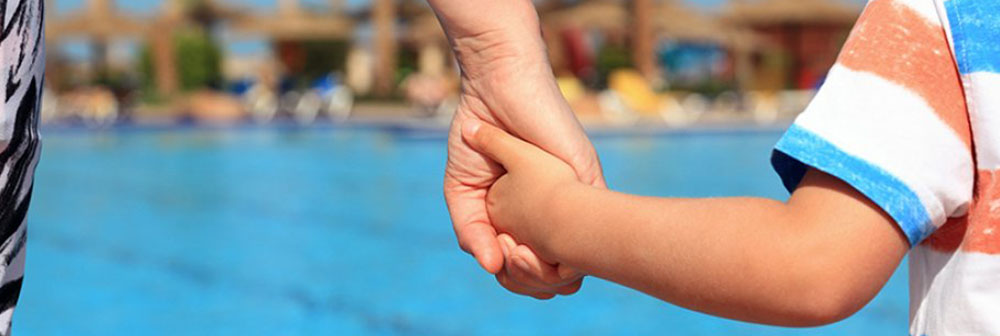
Some pool safety topics go neglected, not because they aren’t important but because they’re complicated. Here are three pool related safety tips you’ll want to understand before you buy your chemicals or step back into your pool.
1. You Can’t Use Certain Fire Extinguishers on Chemical Fires
The worst has happened, and your barbecue, or some other source, has inflamed your pool chemicals. If your first instinct is to reach for your home “dry chemical” fire extinguisher, you’d make a bigger flame. Instead, you should use large amounts of water to extinguish the flame. Of course, you should also be calling your local fire department right away, and evacuating your pool area and home.
To avoid fires in the first place, you should store your pool chemicals separately in a cool, dry place. Keep your fertilizers, pesticides, and other chemicals elsewhere. Don’t let pool chemicals get exposed to heat, or grease, like from backyard lighting or barbecues. Also, you shouldn’t use chemicals together, within a close time span, unless they come in a multi-product like our Pool Supplies Canada Multi-Shock.
2. CPR is Different for Young Children
How hard should chest compression be on an infant? How about a seven-year old? How much air should you be breathing into an infant when giving mouth-to-mouth? You may not allow infants or young children in the pool, but they may be dropped in or crawl in anyway, and the last thing you want to do is be caught unprepared for a pool emergency. At least one adult who knows how to give CPR to children and infants should be supervising the pool whenever children are around.
The major difference between child and adult CPR is a reduction of force. For an infant, you use two fingers during chest compressions. For a child you use the base of your hand. Correct placement and pressure is important in both cases, as young bones are fragile. You’ll need to take a course to learn proper CPR in full.
3. Algae Control Prevents Slips and Falls
We think algae is dangerous to touch or get in our mouths because it’s slimy and green. Usually though, algae isn’t harmful to the touch. Instead, it makes the pool and nearby surfaces more slippery, which can result in dangerous falls. This means you should be taking extra care to keep your footing while treating an algae problem. When applying your algaecide, have someone nearby in case you do fall.
Algae also reduces the effectiveness of sanitizers, but the danger there is the bacteria and viruses that will take shelter in your cloudy water, not the algae itself. To keep your sanitizer working properly, you need to constantly keep algae and other organic matter issues under control. A DIVE System is a great way to keep algaecide and chlorine levels stable from the convenience of an app, without having to buy or measure chemicals.
For the complicated truth about everything pool, read our blog posts. Or, contact a Pool Supplies Canada representative directly - we have the answers you need!
This Blog was Posted on August 10th, 2018
Any Offers, Prices or Product Line Ups Mentioned on this Page are Subject to Change Without Notice
Enter your postal code to check your area.